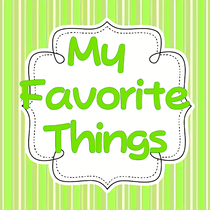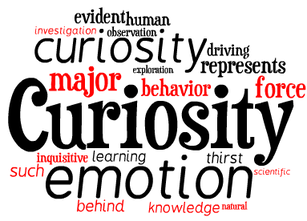 Once again I owe the inspiration for this blog to social media, which is ironic because it relates to the effectiveness of social media as a marketing tool. In this case, I read a Tweet from an author listing all the social media channels to which he subscribed, plus his blog, and bemoaning the fact that they weren’t generating much in the way of sales. I took a quick look at his Twitter feed and spotted at once what the problem was: a lack of engagement.  No, not that sort of engagement! No, not that sort of engagement! He had made a few re-tweets and posted a few “fake engagement” type posts (I’ll be returning to that shortly), but there was nothing on his feed that would encourage me, as a reader, to check out his work. So, it was unsurprising that despite all the channels he was trying to use, he was getting little return. Many authors see social media as a way of plugging their books and no more. That is where they go wrong. Yes, you may generate a few sales by metaphorically saying “Buy my book”, but it is just as likely that readers will scroll past and read a Tweet that isn’t trying to sell them something.  Even if they are interested in the book, they have to click away from the social media channel to check it out, and that interrupts their social media experience, so the best that can be hoped for is that they check it out later. That rarely happens because, by that time, the post has been lost amongst the thousands of others that have since appeared on the timeline. But if social media is so poor when it comes to selling books, why do so many social media gurus still champion it? Because social media is a useful tool – but you have to use it the right way. All tools have to be used correctly if they are to provide you with the right results and social media is no different in that respect.  I’ll be using Twitter as my demonstration model, but the same problems apply with most social media channels. So, what do people do wrong? The most common mistake is “fake engagement”. This produces them lots of nice engagement data but doesn’t produce the desired results. In other words, it looks like it is working if you check the number of responses that a post got, but it doesn’t actually sell any books. So, what is “fake engagement”? Well, let’s start with what I mean by engagement. Engagement is supposed to be a conversation, which builds up a relationship, which then leads on to curiosity about the author’s work.  If the approach used generates responses but without that conversation emerging, then it is fake engagement, because it is one sided. It comes in many forms, but these are the most common: “Can anyone see my Tweets?” There are variations on that question, but the basic idea is that the viewer responds with a “yes, I can” answer, which appears in the Twitter analytics as engagement. But it is one sided engagement as no conversation emerges from it.  The “Writer’s boost” or “author boost”. This is the one I hate the most, because it uses the desperation of other authors to create the fake engagement. I don’t know of any author who has ever made a sale through responding to that sort of invitation (please comment below if you have). It comes in many forms, including posting links to books or blogs or posting cover images. A variation is asking authors to post the first line of their book or from a chapter, or to say something about a character. The inference is that the curiosity of readers will be excited and they will want to know more, but as the post is appealing to authors, not readers, there is little likelihood of that happening. (yes, I know authors are readers too, but in this instance they are responding as authors, not looking for their next new read). These types of post generate a lot of responses from authors, often several hundred but, again, it doesn’t create actual engagement. There are variations on this approach, such as asking people to recommend books. It usually starts with the poster suggesting they suddenly have some spare cash to spend and they want to spend it on books.  “Who/what is your favourite ….?” There is a natural impulse to respond to those sorts of Tweets, but I would advise against it. In its most harmless form, answering the question is just another form of fake engagement. However, it can also be a form of data gathering. Don’t be surprised if you see a sudden surge in advertising on your timeline related to products associated (however tangentially) with your answer. Some dialogues do emerge from those sorts of questions, but they tend to be between other responders, not with the person who asked the question in the first place. That data also appears in their engagement statistics. The questions take many forms. Another variation is “What goes on first, the peanut butter or the jelly?”, or “What goes with peanut butter (you can’t say jelly)?” The British version of that is “Jam or cream?” (Brits will know what that is about) but it’s still fake.  “I’m having a bad day.” Yes, I know that there are sometimes people on social media who are genuinely having a bad day. But that only makes this sort of fake engagement worse, because it is the very worst form of manipulation. They may look like they are saying “Feel sorry for me; sympathise with me; send me pictures of kittens or puppies”, but all of these are fake engagement. It boosts their engagement numbers and makes their feed look popular, but they don’t actually engage with anyone. And without that engagement, they will never sell any books. And they certainly won’t buy any of your books if you respond.  Surveys If you want to boost your engagement stats, post a survey. People love them. But they aren’t real engagement. I could keep adding to this list, but I’m sure you get the idea by now that fake engagement is about getting people to respond to a post, not about actually taking an interest in anything the responders have to say. So, what is real engagement and how do you use it to sell books?  Find the real readers. Find the real readers. First of all, you have to search out and engage with readers, not with other authors. If you are an author, you are trying to attract new readers. That means talking to readers about books.. If you are a sci-fi author, you need to talk to sci-fi readers. If you are a romance author, you need to talk to romance readers, etc etc. How does that sell books? It doesn’t. At least, not directly. Social media isn’t a “direct” sales channel. You can’t draw a line between a post and a purchase.  Social media has to be used to excite people’s curiosity about you and the way you do that is the same as you would in real life. You don’t walk up to someone in the street and say “buy my book”. So why would you think you can do that on Twitter, or Facebook, or Instagram? No, you engage people in conversation and the best form of conversation to engage them in is the thing they like to talk about the most – themselves. And, eventually, they feel obliged to ask “what about you?” At that point it is OK to mention your book – because they asked.  BTW, this is where a pinned post about your book is essential. Because they may not ask about you or your book, but they may go and take a closer look at your feed and that’s where they will see the post about your book, if you have pinned it. You still may not make a sale, but you may at least have captured their interest enough to take a look at your book. It is very much a “soft sell” approach, but it is more likely to be successful on social media than a hard sell. How do you identify readers?  It isn’t easy, unless they have it in their biography or they mention it in their posts, but if you assume that everyone is a reader, then you won’t go far wrong. The worst that can happen is that you use social media for what it is meant to be used – for being sociable. Does that all sound like hard work? OK, who told you that it would be easy? Because if anyone did, they lied to you. As I have said in many previous blogs, there is nothing easy about marketing, and that includes social media marketing. Using social media as a tool to promote your work is hard and requires a lot of time and effort. But, done right, it can be effective. Done wrong and it gets you nothing, as the person who inspired this blog found out. If you have enjoyed this blog, or found it informative, then make sure you don’t miss future editions. Just click on the button below to sign up for our newsletter. We’ll even send you a free ebook for doing so.
0 Comments
Leave a Reply. |
AuthorThis blog is compiled and curated by the Selfishgenie publishing team. Archives
June 2025
|
 RSS Feed
RSS Feed